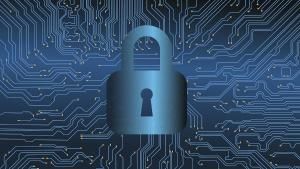The real estate industry holds vast amounts of sensitive client data, making it an attractive target for cybercriminals. As technology becomes increasingly intertwined with business operations, it is essential for real estate professionals to prioritize cybersecurity to protect their clients and safeguard their business from potential cyber threats. This article outlines the best practices that real estate professionals should follow to enhance their cybersecurity measures.
1. Educate Employees
One of the most critical aspects of cybersecurity is ensuring that all employees are well-informed about the potential risks and trained on best practices. Regular cybersecurity training sessions should be conducted to educate employees about current threats, how to identify phishing emails, the importance of strong passwords, and how to handle sensitive data securely.
2. Implement Strong Password Policies
Passwords are the first line of defense against unauthorized access. Encourage employees to create strong, unique passwords that are not used for any other platform. Implement a password policy that enforces password complexity and regular password changes. Additionally, consider implementing multi-factor authentication (MFA) to add an extra layer of security.
3. Conduct Regular Security Audits
Regular security audits are essential for identifying vulnerabilities in your systems. Conduct thorough assessments to identify any weaknesses in your network, applications, and infrastructure. These audits can help you discover any potential security gaps and enable you to take timely actions to strengthen your defenses.
4. Keep Software Updated
Outdated software can provide easy entry points for cybercriminals. Regularly update all software, including operating systems, antivirus programs, and other applications, with the latest security patches. Set up automatic updates whenever possible to ensure that your systems are protected against the most recent threats.
5. Backup Data Regularly
Regularly backing up your data is crucial in protecting against data loss due to cyberattacks or system failures. Implement a comprehensive backup solution that includes offsite or cloud backups to ensure redundancy. Test your backups periodically to confirm that they are working correctly and can be readily restored if needed.
6. Secure Wireless Networks
Wireless networks are often targeted by hackers due to their vulnerabilities. Ensure your wireless networks are encrypted using the latest security protocols, such as WPA2 or WPA3. Change default router login credentials, use strong Wi-Fi passwords, and disable guest networks to minimize the risk of unauthorized access.
7. Use Firewalls and Antivirus Software
Firewalls act as a barrier between your internal network and potential threats from the outside world. Use both hardware and software firewalls to monitor and control incoming and outgoing network traffic. Additionally, install reliable antivirus software on all devices to detect and eliminate malware, spyware, and other malicious programs that can compromise your systems.
8. Ensure Secure Online Transactions
Real estate transactions often involve financial transactions and sensitive personal information. Secure all online transactions by using encryption protocols such as Secure Sockets Layer (SSL) or Transport Layer Security (TLS). Implement secure payment gateways and regularly review and update your payment processing systems to mitigate the risk of data breaches and fraudulent activities.
9. Manage Access Control
Limit access to critical systems and data to only authorized personnel. Implement strict access control policies, including the principle of least privilege, which ensures that individuals have access only to the information and resources necessary for their job responsibilities. Regularly review and revoke access for employees who no longer require it.
10. Stay Informed about Security Threats
Stay updated about the latest cybersecurity threats relevant to the real estate industry. Join industry associations and subscribe to reputable security blogs and newsletters to stay informed about emerging threats, new attack vectors, and best practices. Awareness and knowledge are crucial in staying one step ahead of cybercriminals.
By following these best practices, real estate professionals can significantly enhance their cybersecurity posture and reduce the risk of cyberattacks. Prioritizing cybersecurity is not only a legal and ethical responsibility but also a business necessity that protects the integrity of your clients, business operations, and reputation.
